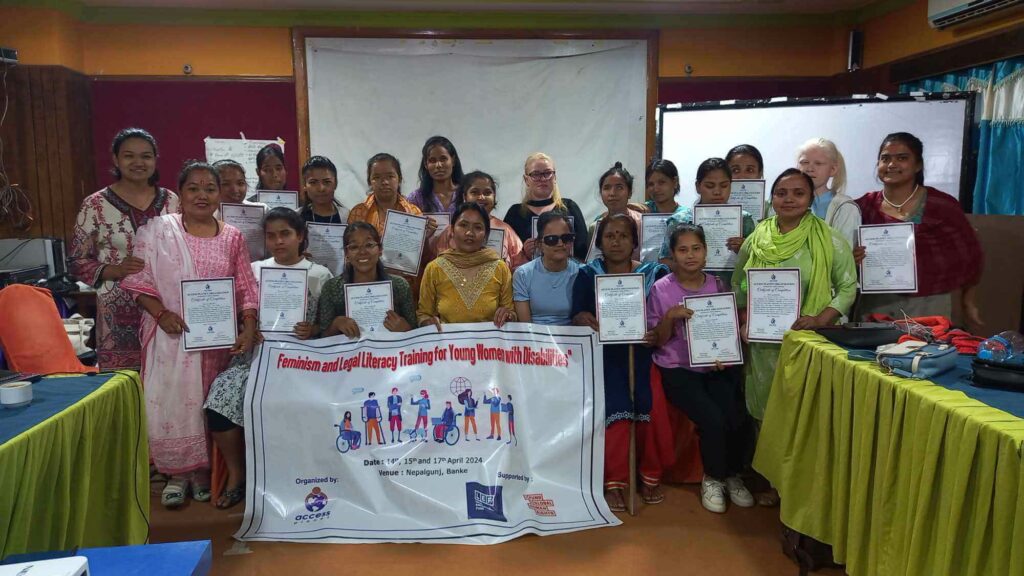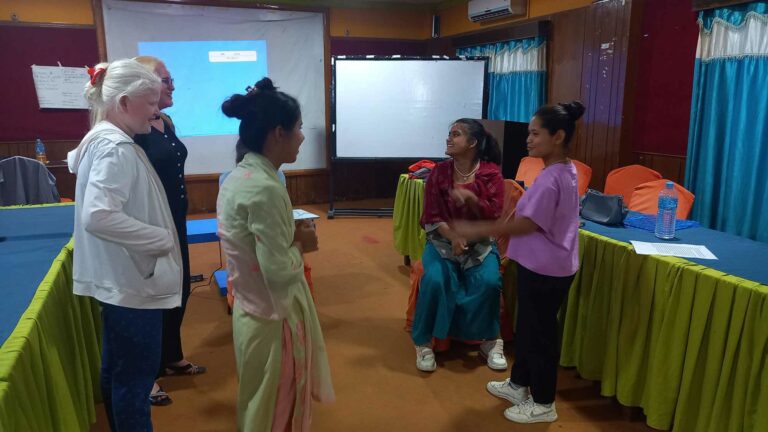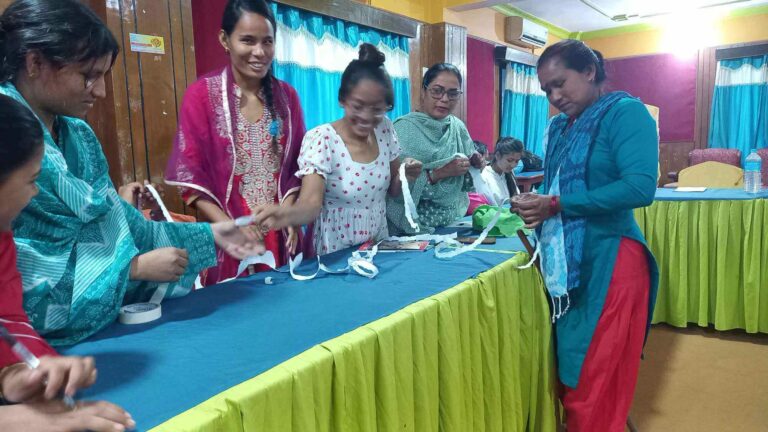Feminism and Legal Literacy Training to Young Women With Disabilities_Lumbini Province

Access Planet Organization in support of the Legal Empowerment Fund (LEF) and The Fund for Global Human Rights organized three days of training on the topic “Feminism and Legal Literacy Training” for young girls and women with disability on 14th,15th and 17th of April in Nepalgunj, Banke. The training was conducted to build the capacity of young girls and women with disability on different topics like Leadership and its components, Gender, my roles and my realities, Feminism and its forms, Intersectional feminist practices, terminologies related to law and human rights including their concepts, importance of legal literacy, fundamental and legal mechanism, CRPD, SDG’s, CEDAW, national laws and laws related to person with disabilities, constitution and rights of persons with disability, and advocacy skills.Thus, girls and women with disability were trained and capacitated on different topics that enabled them to advocate for themselves and others in their communities.
Objectives:
The main objectives of the training are,
- To build the knowledge of leadership, Gender roles, and feminism among young women with disability.
- To strengthen the capacity of girls and women with disability on national and international laws and policies related to persons with disabilities.
The sessions conducted in this training are as follows:
- Group Formation and Team Building
- Leadership, Characteristics, and Its Values
- Gender: My Roles and My Realities
- Demystifying feminism and the forms of feminism
- Intersectional feminist practice
- Fundamentals of human rights and International human rights mechanisms
- Effective communication skills
- Convention on Elimination of all Forms of Discrimination Against Women
- CRPD and its linkage with SDG’s
- Act related to Persons with Disabilities (ARPD)
- Laws and local mechanisms for preventing gender-based violence (GBV)
- Advocacy Skills and Strategies
Outputs:
- Twenty-one girls and women with disabilities gained knowledge about gender, feminism, laws and policies, and most significantly, their rights.
2. The grassroots movement for girls and women with disabilities was reinforced in addition to the empowerment of these individuals.
3. The organization's bonds with human rights activists, disability rights activists, and government officials have strengthened.
Image Gallery



